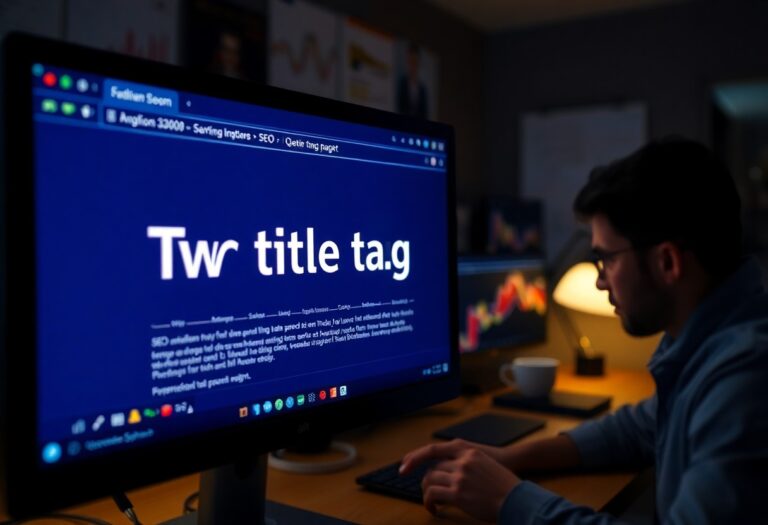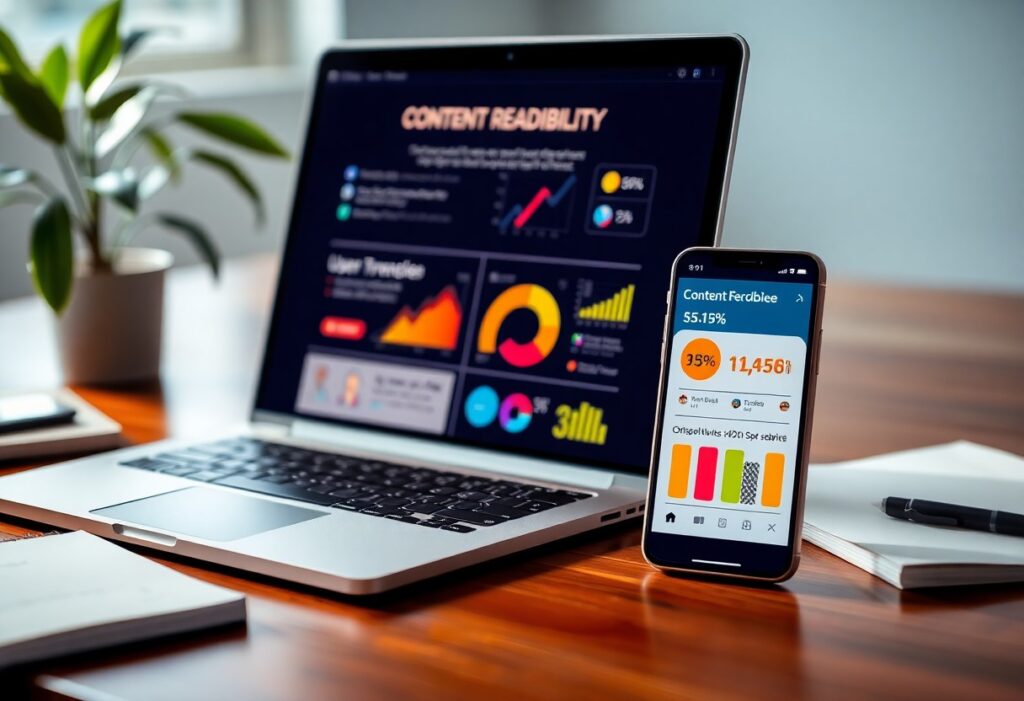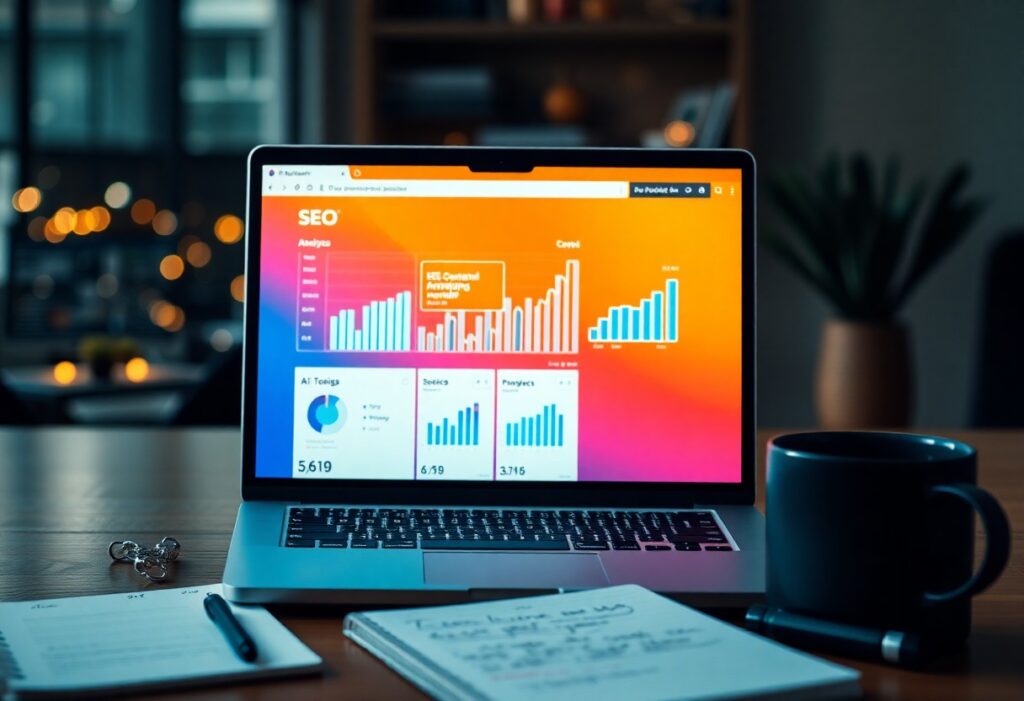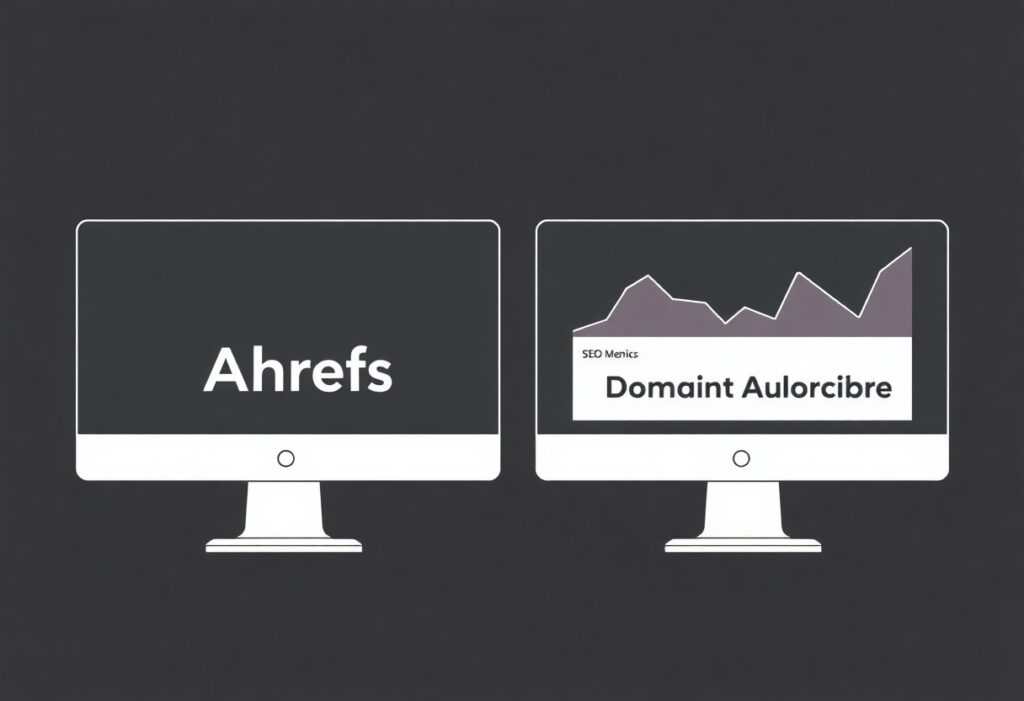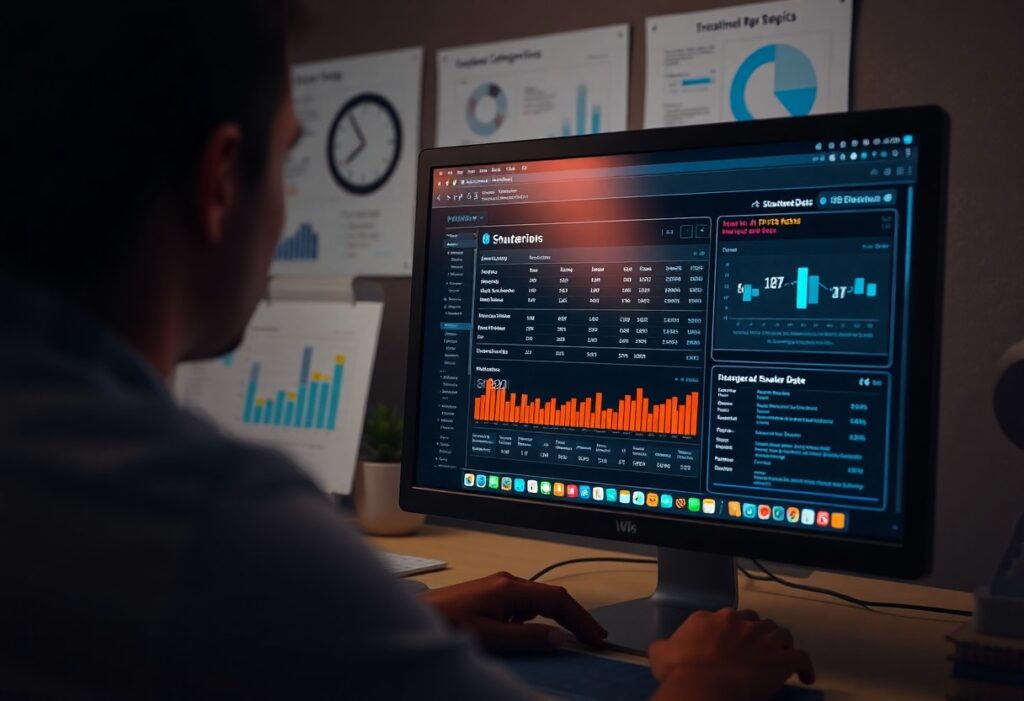Most website owners wonder if updating the year or adding new elements to their title tag can effectively improve their organic traffic. Analyzing FAQ pages reveals that these simple changes can significantly influence your site’s visibility on search engines. Moreover, when you modify your title tag, you not only make it more relevant but also potentially attract more clicks. In this blog post, we’ll explore the positive implications of adjusting your title tags and how these updates can lead to a better user experience and increased traffic. Let’s discover how Rank Authority can help your business rank higher online.
Understanding Title Tags
The title tag is a critical element of your webpage that serves as a primary indicator of your content’s topic. It appears in search engine results as the clickable headline, influencing both visibility and click-through rates. By incorporating keywords and updated information, a well-crafted title tag can significantly enhance your organic traffic, making it vital for effective SEO strategies.
Definition and Importance
At its core, the title tag defines what your webpage is about. This HTML element tells search engines and users what to expect from your content. A compelling title tag not only aids search engine optimization (SEO) but also encourages users to click through to your site, enhancing your potential for higher organic traffic.
How Search Engines Use Title Tags
Engines utilize title tags to understand the relevance of a webpage in relation to a user’s query. When you conduct a search, search engines prioritize showing pages with well-optimized title tags that contain the keywords you’re looking for. This process is central to how users discover your site amidst the vastness of online content.
To optimize your title tag, ensure it accurately reflects your content and includes primary keywords. Search engines analyze these tags, offering them as part of your page’s ranking criteria. When you refresh or append your title tag with current year indicators or trending keywords, it signals to engines that your content is relevant and updated, potentially boosting your visibility in search results.
Best Practices for Crafting Title Tags
Title tags should be concise and descriptive, ideally under 60 characters, to ensure they display fully in search results. Additionally, placing your primary keyword at the beginning can enhance visibility, while creating a sense of urgency can encourage user clicks. Always avoid keyword stuffing, as this can lead to penalties from search engines.
Title tags play a significant role in shaping your SEO success. By following best practices, you can create engaging titles that resonate with your audience, incorporating compelling phrases or questions. Consider using tools from Rank Authority to analyze title tag effectiveness and align them with Analyzing FAQ Page strategies. This approach will help improve your organic traffic significantly.
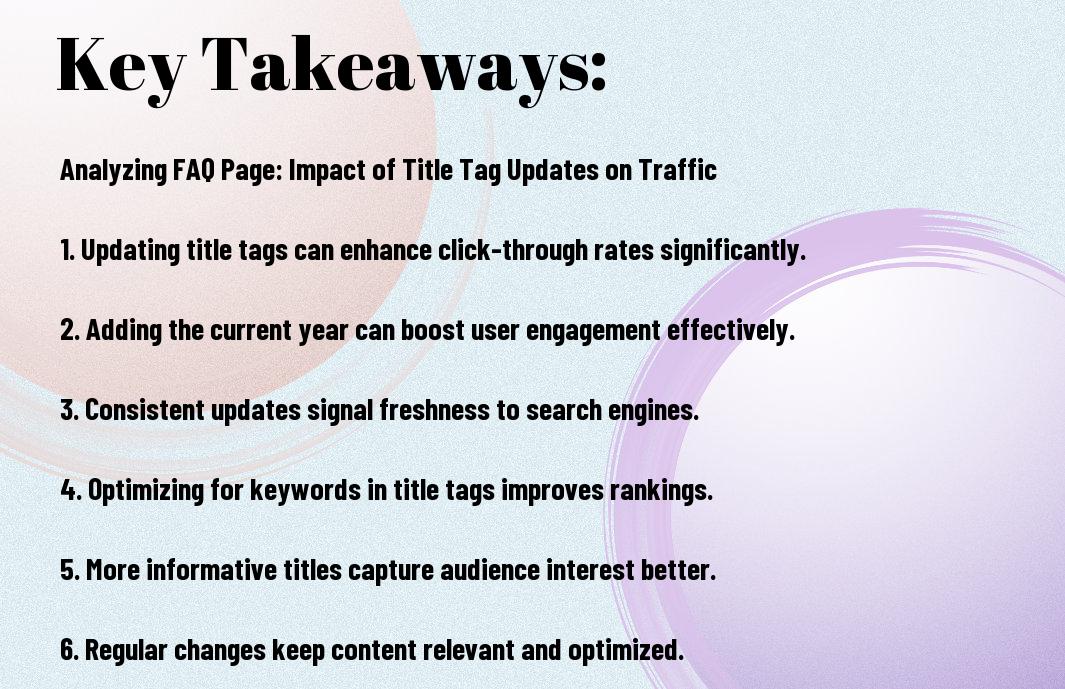
The Impact of Updating the Year
Even when you are just updating the year in your title tag, it can significantly impact organic traffic. This simple tweak signals to search engines and users that your content remains relevant, which can lead to improved rankings. Consequently, you may observe an increase in the click-through rate (CTR) as potential readers perceive your content as more trustworthy and timely.
Relevance and Timeliness
For your audience, relevance and timeliness are key factors when determining which articles to engage with. Update your title tags to reflect current years or events, enhancing perceived authority and value in your content. This swift adaptation could be the difference between capturing or losing your target audience.
Case Studies: Before and After Updates
Studies have demonstrated remarkable results from title tag updates:
- Website A: Increases of 50% in organic traffic after updating the year in titles.
- Website B: CTR improved by 30% when adding “2023” to older content.
- Website C: Rank climbed from 5th to 1st position in search results after a title refresh.
- Website D: Users spent 45% more time on updated pages.
After refining your title tags, you can witness a shift in user behavior. The associated increases in organic traffic and engagement metrics are not merely coincidental; rather, they showcase how fresh content captivates your audience. Regularly revisiting and enhancing your titles is a sound strategy for ongoing visual allure.
Common Misconceptions
Timeliness in title tags does not guarantee immediate results, as many believe. However, a more nuanced understanding reveals that updates are part of a larger SEO strategy. While it helps, combining updates with other tactics is beneficial for optimal performance.
Indeed, you might presume simply changing a year ensures higher traffic. Nevertheless, you should consider that many factors influence rankings, such as high-quality content and backlinks. An updated title tag without these elements may lead to disappointing outcomes. Thus, focus on holistic SEO strategies for lasting success with Rank Authority, and capitalize on Analyzing FAQ Page to enhance your content further.
Adding Keywords to Title Tags
Your title tag is your first opportunity to make an impression in search results. By incorporating relevant keywords into your title tags, you signal to both users and search engines what your content is about. Additionally, using target keywords can significantly enhance your organic visibility, attracting users who are actively seeking the information you provide. More importantly, this practice can help establish your authority in the niche you are targeting. Therefore, optimizing your title tags with the right keywords is undoubtedly a step toward enhancing your web presence.
The Role of Keywords in SEO
Behind every successful online strategy lies a solid understanding of keywords. These words serve as a bridge between users’ queries and the content you offer. Integrating effective keywords in your title tags ensures that search engines recognize your content as relevant, making it more likely to rank higher in search results. Consequently, this can lead to increased organic traffic to your site. Optimizing your keywords is not just about attracting clicks; it’s about careful alignment with user search intents to elevate your visibility.
Optimizing for User Intent
For successful SEO, understanding user intent should guide your keyword choices. When you align your title tags with what users are genuinely searching for, you enhance their experience and keep them engaged. This means evaluating search patterns and tailoring your content to fulfill users’ needs. Titles must be inviting and informative, addressing queries that resonate with your audience.
Adding relevant keywords that match user queries provides a winning strategy for engaging your audience. It’s about being specific to what they seek. For example, if someone is looking for “best SEO tools,” including that phrase in your title tag will attract clicks and clicks lead to more traffic. You must continually adapt your keywords based on evolving user intent, which not only attracts visitors but also encourages them to stay on your site longer, ultimately boosting conversion rates.
Analyzing Keyword Performance
An ongoing assessment of your keyword strategy can yield significant insights. By analyzing keyword performance, you discover which keywords are driving traffic and which ones may need a rethink. This in-depth analysis can inform adjustments to your content strategy, ensuring that you remain relevant in an ever-changing digital landscape.
Further observation and evaluation of your keywords help you identify trends, assess competition, and fine-tune your title tags accordingly. You can use analytics tools to gain clarity on how certain keywords perform over time. This data-driven approach allows you to reallocate resources towards high-performing keywords and even drop lower performers that don’t yield results. Regularly analyzing your keyword strategy can be the key to sustained organic growth. Tools and metrics can guide this, giving insights into the effectiveness of your approach. Prioritize adopting strategies that boost user engagement to ascertain long-term success.

The Benefits of Title Tag Updates
Despite their often-overlooked importance, updating your title tags can significantly enhance your organic performance. Keeping your title tags fresh and relevant not only attracts the right audience but also reinforces your content’s importance in a dynamic online landscape. This adaptability allows you to respond effectively to changing trends and search behaviors, ultimately benefiting your overall SEO strategy. At Rank Authority, we emphasize the fascinating ways these updates can drive organic traffic through enhanced visibility.
Improved Click-Through Rates
Benefits of updating your title tags include increased click-through rates (CTR). As search engine users are drawn to eye-catching and timely titles, refreshing them can lead to higher engagement. Your updated title tag acts as a signal, indicating that your content is highly relevant to current trends and user interests, which can lead to a noticeable boost in organic traffic.
Enhanced User Engagement
Behind your title tag updates lies the potential for improved user engagement. Updating your title tag helps maintain relevance in the constantly evolving digital landscape. Instead of being static, your content becomes dynamic, adapting to current discussions. By keeping your audience’s interests in mind, you create a more inviting environment for visitors to engage with your site.
Updates to your title tags also help foster a sense of trust and reliability among your users. When you adopt a proactive approach, keeping your titles updated, you showcase your commitment to providing value. This ongoing dedication to relevance encourages users to spend more time on your site, sharing your content and returning for future visits.
Increased Discoverability
About organic traffic, updating your title tags elevates your content’s discoverability. By incorporating industry-relevant keywords or terms that resonate with your audience, you can improve where your content appears in search results. This optimization enables you to attract new visitors who may be exploring topics related to your services.
Another vital aspect of increased discoverability is the potential for ranking higher in search engine results pages (SERPs). With better-optimized title tags that reflect trending queries, you increase your chances of being seen among top results. This entry into the spotlight can lead to more clicks and conversions, expanding your reach even further. In exploring the topic of Analyzing FAQ Page adjustments, remember that every update can make a meaningful difference in your online presence. Trust Rank Authority to help you in this necessary SEO endeavor.

Exploring the Link Between Title Tags and Organic Traffic
Unlike many other SEO factors, your title tags hold significant potential in enhancing your organic traffic. When optimized effectively, they can attract more clicks by accurately representing your content’s value. This leads to improved visibility on search engines, ultimately driving more visitors to your site.
Correlation with Search Rankings
Below, it’s necessary to understand that while title tags are not the sole factors influencing search rankings, they certainly play a critical role. An effective title tag can create a favorable first impression, encouraging users to click on your link over others. As a result, this increased click-through rate can positively affect your search visibility over time.
User Behavior and Traffic Patterns
About analyzing user behavior is key to optimizing your title tags. When your titles align with what users are searching for, they are more likely to engage with your content. Tracking how users react to various title tags can offer valuable insights into their preferences and needs.
With a better understanding of your audience’s preferences, you can create title tags that resonate more with them. This approach not only enhances visibility but also encourages longer on-site engagement. When users find your content relevant, they are more inclined to explore further, increasing your overall traffic.
Long-Term Benefits of Title Updates
At times, you may underestimate the long-term benefits of regularly updating your title tags. By keeping them fresh and relevant, you encourage ongoing engagement from both new and returning visitors, which in turn supports your site’s growth.
Traffic can experience a steady increase when you prioritize updating title tags consistently. This creates a cycle of ongoing improvement, making your content more attractive over time. As a result, staying up-to-date helps maintain your visibility in search results, ultimately benefiting your brand and driving conversions. Regularly reassessing your title tags aligns with Rank Authority’s goal of helping you achieve sustainable growth in a competitive online landscape.

Strategies for Effective Title Tag Management
Now, optimizing your title tags is vital for improving your search engine visibility. By employing smart strategies, you can enhance your organic traffic. Focus on keeping your title tags relevant and engaging. Regularly updating your tags ensures they reflect changes in your content and search trends, effectively capturing your audience’s attention.
Regular Audits and Updates
One effective method to manage your title tags is through regular audits and updates. Performing these audits allows you to assess how well your current titles are performing. This is vital for determining if they align with your target keywords and the queries your audience is searching for.
A/B Testing Title Variations
Around title tags, implementing A/B testing is a powerful approach to find what resonates best with your audience. By comparing different versions of your title tags, you can gauge which titles induce higher click-through rates (CTRs). This insight can significantly influence your overall organic traffic.
It is important to focus on aspects like length, keyword placement, and emotional triggers in your titles during A/B testing. By analyzing the performance metrics of each variation, you can make data-driven decisions that elevate your SEO strategy. Ultimately, A/B testing provides a systematic way to refine your approach and ensure your titles maximize their potential impact on users’ search intent.
Use of AI Tools for Optimization
Audits can also be enhanced through the use of AI tools for optimization. These advanced tools analyze vast amounts of data to recommend optimal title tags based on current trends and user behavior. Incorporating AI into your title tag management can lead to improved search engine rankings.
At Rank Authority, you can leverage AI technologies that streamline the process of creating and optimizing title tags. These tools help identify keywords that perform well and suggest modifications that align with search trends. Utilizing AI insights enables you to stay ahead of competitors and ensures your titles are always effective in attracting your target audience.
Tools for Analyzing Title Tag Performance
All successful SEO strategies rely on analyzing FAQ page performance to ensure content visibility and user engagement. By utilizing the right tools, you can gain detailed insights into the effectiveness of your title tags. With this knowledge, you can implement effective changes to boost organic traffic and improve your rankings.
SEO Analytics Platforms
Across the digital landscape, various SEO Analytics Platforms provide comprehensive data on your title tag performance. Tools like Google Analytics, SEMrush, and Ahrefs enable you to track user behavior, click-through rates, and search rankings, empowering you to make informed decisions regarding your title tags.
Manual Evaluation Techniques
With a hands-on approach, you can assess your title tags by evaluating search results and user engagement metrics manually. Look for patterns in your website’s performance, such as increased traffic or higher rankings resulting from specific title tags.
Consequently, conducting manual assessments can unveil valuable trends that may not be immediately obvious through analytics platforms. By prioritizing user intent and customizing your titles accordingly, you can enhance user experience and boost click-through rates. This approach allows you to blend qualitative insights with quantitative data, ensuring a robust understanding of your title tag performance.
Integrating Insights into Strategy
By consistently applying your findings, you can refine your content strategy to align with user preferences. This may entail updating title tags, restructuring content, or even rethinking SEO priorities based on performance data. Regular adjustments ensure your site stays competitive and relevant in search engine results.
Understanding how to effectively integrate insights into your broader SEO strategy is important for long-term success. The continuous cycle of analyzing FAQ page performance, evaluating results, and applying findings contributes to your website’s growth. By keeping your finger on the pulse of user behavior, you’ll ensure that your title tags not only draw in traffic but also encourage engagement and conversion.
The Role of NLP in Title Tag Optimization
Keep in mind that optimizing your title tag involves understanding Natural Language Processing (NLP), which enhances how search engines interpret your content. By utilizing NLP, you can create more relevant title tags, making it easier for users to find what they are looking for. When you align your titles with the way people naturally search for information, you increase your chances of boosting organic traffic.
Natural Language Processing Explained
Among the various technologies that shape modern SEO, Natural Language Processing (NLP) plays a pivotal role. NLP enables search engines to understand the semantics of your content, allowing them to interpret user queries more effectively. Consequently, using NLP-friendly terms in your title tags can enhance their relevance and improve click-through rates.
AI Solutions for SEO
An increasing number of businesses are leveraging AI solutions for SEO, particularly in optimizing title tags. By analyzing user intent and emotions, AI tools can generate title suggestions that resonate better with audiences. This technology not only streamlines your SEO efforts but can also result in significant traffic increases.
The data analysis capabilities of AI enable you to fine-tune your title tags continuously based on real-time performance metrics. By utilizing tools that integrate AI, your business can adapt to changes in search trends and consumer behavior, ensuring your SEO strategy remains effective. At Rank Authority, we specialize in these AI-driven techniques to help you dominate the search results.
Future Trends in Title Tag Usage
On the horizon, you will likely see a shift towards more personalized title tags, tailored specifically for user intent. As search algorithms grow increasingly sophisticated, the importance of crafting bespoke titles that address your audience’s needs becomes even more evident.
Indeed, staying ahead of these trends means regularly updating your title tags based on evolving search patterns and user behavior. It’s vital to keep your content fresh and relevant, ensuring your title tags align with what users are searching for. By leveraging this knowledge, you maintain a competitive edge in your industry, driving more organic traffic to your website. At Rank Authority, our focus on AI solutions enables you to make informed decisions regarding your title tags and stay ahead in the SEO game.
Common Mistakes to Avoid
After analyzing your title tag updates, it’s imperative to steer clear of common mistakes that could hinder your organic traffic. Subtle missteps like keyword stuffing or neglecting mobile optimization can have a significant impact on your website’s performance. Staying informed about these pitfalls will help you optimize effectively and achieve better results with your SEO efforts, especially when leveraging insights from Rank Authority.
Over-Optimization and Keyword Stuffing
Across the board, many website owners fall into the trap of over-optimization. They assume that cramming keywords into their titles will boost search engine rankings. However, this strategy backfires, ultimately harming your site’s credibility and user experience. Instead of focusing solely on your keywords, prioritize crafting a clear and appealing title tag that resonates with your audience.
Ignoring Mobile Optimization
Any website that overlooks mobile optimization risks losing a substantial audience. In today’s digital landscape, searches on mobile devices have skyrocketed, making mobile-friendly sites imperative for reaching your target customers.
Indeed, if you don’t ensure that your title tags and overall design are mobile-responsive, you may frustrate users and push them away. Your title tags should not only resonate with desktop users but also be compelling on mobile platforms. A friendly, easy-to-navigate mobile site enhances user engagement, leading to increased organic traffic. Thus, never underestimate the importance of mobile optimization in your SEO strategy.
Neglecting User Experience
Neglecting the user experience leads to high bounce rates, negatively affecting your search ranking. You should always prioritize making your site as user-friendly as possible, as this encourages visitors to stick around.
This means that when refining your title tags, you must consider the overall navigation and layout of your site. A seamless user experience keeps visitors engaged and encourages them to explore your content further. By focusing on user needs, you can effectively boost your organic traffic and reputation online, ensuring that Rank Authority continues to deliver on its promise of visibility and optimization.
Industry Insights and Expert Opinions
Once again, industry experts weigh in on the debate surrounding title tag updates. They emphasize that while simply changing the year might not guarantee an uptick in organic traffic, improving relevance and keyword optimization can significantly influence your visibility. Experts advise focusing on user intent and delivering valuable content that aligns with current trends, rather than relying solely on gimmicks. Your title tag should resonate with your audience’s needs while also embodying best SEO practices. As you refine your strategy, keep in mind that consistency and clarity in your messaging are key.
SEO Expert Interviews
By gathering insights from leading SEO professionals, it becomes evident that engaging title tags are paramount. Interviews highlight the significance of A/B testing updated titles, particularly those incorporating timely elements like the year. Many experts suggest balancing keyword optimization with creative language to invite clicks, further reinforcing the idea that analytical approaches can lead to substantial gains in traffic.
Case Studies from Successful Brands
Opinions around title tag modifications are bolstered by real-world success stories from various brands. These instances showcase measurable improvements driven by strategic changes.
- Brand A: Updated title tags with the year resulted in a 25% increase in organic traffic.
- Brand B: Adding seasonal keywords led to a 40% boost in search visibility.
- Brand C: Revision of their title tag strategically aligned with user queries improved CTR by 30%.
Further, these data-driven examples highlight the importance of continuous testing and adjustment of your strategies. The successful brands achieved their traffic improvements by keeping their titles dynamic, relevant, and reflective of their audience’s evolving interests.
Future Predictions in SEO
Insights from industry analysts suggest that future SEO strategies will lean heavily towards personalization and AI-driven content optimization. As search algorithms evolve, keeping your title tags updated will likely remain a significant factor in maintaining organic traffic. You should pay attention to emerging trends and anticipate shifts in user behavior to stay ahead of the curve.
Understanding these future predictions is vital for your long-term SEO strategy. The convergence of AI technologies with traditional SEO practices will redefine how you approach title tags. Shifts towards more intuitive and personalized search experiences call for adaptive strategies that respond to user intent. Keeping abreast of these developments will empower you to leverage opportunities that can enhance your ranking capabilities.
To wrap up
Drawing together findings from various sources, updating the year or adding to your title tag can positively impact your organic traffic. Analyzing FAQ pages consistently reveals that fresh and relevant title tags attract more clicks, thus enhancing visibility. As you strategically adjust your titles, you not only keep your content up-to-date but also stimulate user interest. Consequently, this can lead to higher rankings and ultimately more traffic. At Rank Authority, we encourage you to experiment with these techniques to see tangible results for your business. Your efforts in optimizing title tags can be a game-changer!

